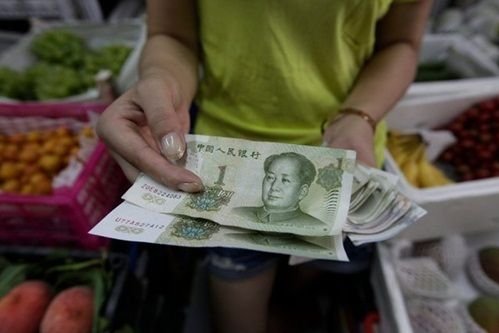
Reasons why China devalues its currency 3
The Yuan (NDT) has fallen to a 4-year low compared to the USD, after the move to lower the reference rate by 1.6% this morning.
China’s move has caused many Asian currencies to lose value.
The global stock market cannot avoid being affected.
A seller in Beijing is paying customers in yuan.
According to the New York Times, there are two reasons why the Chinese Government wants to devalue its currency so much.
Often, these goals are quite contradictory.
A weak domestic currency will support exports by making the country’s goods less expensive on the world market.
China’s moves are being closely watched by the US.
However, this morning the Chinese Central Bank (PBOC) explained that they were just reflecting market developments more closely, and affirmed that they would not continuously lower prices.
RMB price fluctuations in the past 2 days have been very notable.
A 2% fluctuation is not too big for a currency, even a major currency.
China is clearly in difficult times, and it may be worse than people think.
Letting the RMB closely follow the developments of the USD also has many benefits.
China is trying to emphasize its leadership role in the global economy.
However, the RMB cannot become a global reserve currency while China still maintains the control mechanism it believes is necessary to manage its domestic economy.
In other words, China not only wants to achieve diplomatic goals when the RMB becomes an important currency in the world, but also does not want the domestic economy to pay the price.
Last week, the International Monetary Fund (IMF) announced that the RMB is not yet ready to be added to the basket of reserve currencies in this agency’s Special Drawing Rights (SDR).
The International Monetary Fund (IMF) has welcomed this work.
However, this does not mean that China does not have to pay the price.
But it is very rare for a policy choice to help a country achieve two major goals at the same time.






